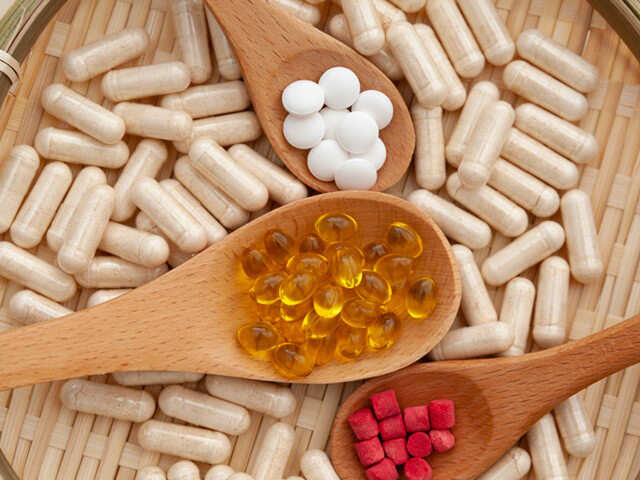Here’s Everything You Need To Know About Vitamin K2 | Femina.in - Femina

Image: Shutterstock
Nutrition Source of Vitamin K2
Benefits of Vitamin K2
Vitamin K2 and Health
Food Sources
Signs of Deficiency
Vitamin K2 Is Enough
Vitamin K2 in Your Diet
Side Effects
FAQs
Nutrition Source of Vitamin K2
Vitamin K2, even though is a lesser-known nutrient, plays an important role in our heart and bone health. It regulates calcium deposition and promotes the calcification of bones. It activates the vital proteins that help in blood clotting, calcium metabolism, and the general functioning of our body.It even aids in helping fight cancer. Eating fortified foods and animal products is a great way to increase the nutritional balance of this nutrient in our bodies. Vitamin K2 is not found in many western diets and there are some bacteria in the large intestine that are known to synthesize vitamin K2.
Benefits of Vitamin K2
When it comes to vitamin K2, it is said that "what's good for our teeth, is good for our whole body", as the benefits of this nutrient start from the mouth. Vitamin K2 prevents nearly every dental disease and makes our bones stronger. It also prevents wrinkles and promotes anti-aging.Along with this, it helps in blood sugar regulation, increases exercise performance, prevents kidney stones and cancer, aids our cardiovascular health, and even prevents the chances of getting a stroke.
Vitamin K2 and Health
Even though people don't know about this vitamin that much, vitamin K is a fundamental nutrient needed for the proper functioning of the human body. It majorly aids in making us healthy, especially in the long term, and prevents various health problems like osteoporosis, heart diseases, dental problems, and so on.It is also noted that vitamin K2 helps in skin health along with the proper function of your brain and preventing heart-related problems. This vitamin helps in activating the protein that binds calcium to our bones, and we already know the importance of calcium for our bone health.
Food Sources

Vitamin K2, which is often found in animal foods, plays an essential role in various aspects of our health. Because of this, you need to make sure you are getting enough of it. There are a lot of different sources of food that can provide you with the required amount.
Cheese, chicken, beef liver, butter, spinach, broccoli, avocado, peas, and egg yolks are some basic foods that help with vitamin K2 deficiency. Besides this, you can also try and experiment with foods like sauerkraut and natto, which is a Japanese fermented soya bean dish, goose liver paste, and eel.
Signs of Deficiency
The biggest symptom that depicts a vitamin K2 deficiency is bleeding into the skin, from a wound, your nose, into the stomach, or even in the intestine. Because of this you might even end up vomiting blood or find blood in your urine and stool. The deficiency of vitamin K2 also weakens bones and makes you bruise easily.Vitamin K2 Is Enough
As mentioned, vitamin K2 is a very essential nutrient that is found in animal products, and helps in blood clot formation, fighting cancer, improving bone health, and so on, because of which, the daily intake of this vitamin is very important. It aids the various different functions of our body and majorly improves our dental health.Besides this, it is great for the long term as it makes our bones strong and prevents problems like arthritis which will, in turn, be beneficial for us in our old age.
Vitamin K2 in Your Diet
To ensure that you are getting the recommended requirement of vitamin K2 daily, you need to consume various different food sources and supplements that are rich in this nutrient. Fermented foods like natto and fortified foods like milk, cereals, and non-diary milk are great vegetarian ways of procuring vitamin K2.Besides this, animal produce is known to be rich in this nutrient, hence you should include animal kidneys and livers, salmon, tuna, and other seafood in your diet to make sure you are able to absorb this vitamin as much as you can.
If needed, as in if you think the levels of vitamin K2 in your blood are low, then it would be advised that you should also take some kind of supplement, whether edible or a cream that you can apply. It is also advised that you be careful and not overdo it.
If you are suffering from some kind of disease then make sure to get yourself checked out by your doctor before you start taking the supplements.
Side Effects

If taken with care, vitamin K2 doesn't cause any problems and is relatively safe. However, if side effects like blurred vision, chest tightness, cough, difficulty swallowing, sweating, hives, skin rashes, bluish color of the fingernails, lips, skin, palms, or nail beds, or yellow eyes or skin occur then you need to seek immediate medical attention. You might also suffer from bloody diarrhea or an upset stomach.
Comments
Post a Comment